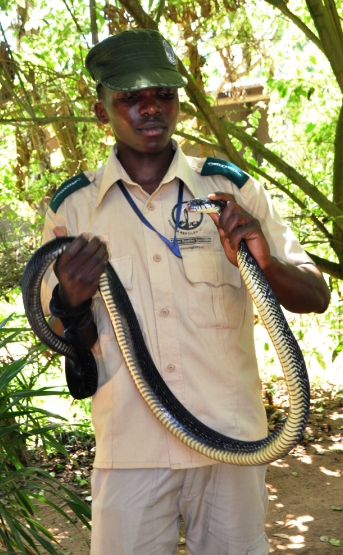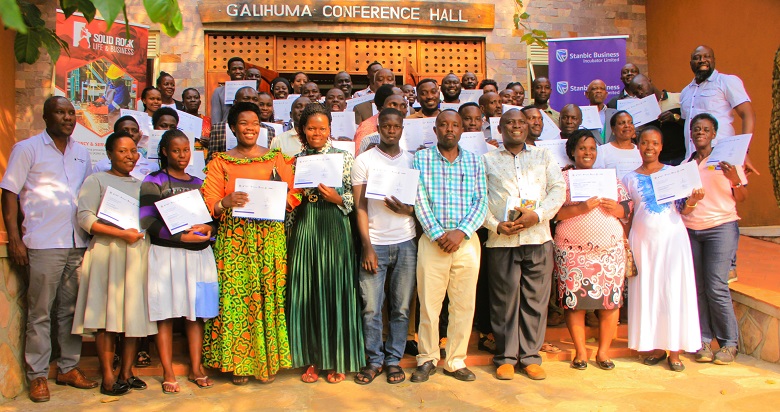A manager at the Uganda Reptile Village holding a snake/Business Focus photo
The Uganda Wildlife Authority (UWA) is embarking on licensing people to start engaging in snake farming as a way of conserving the reptiles, a development that has elicited mixed reactions among experts.
In an interview with URN, Vanice Mirembe, the authority’s Manager Conservation, Education and Awareness said they resolved to allow people keep snakes due to the fact that their habitats are shrinking and yet keeping them would be lucrative for both those who opt to sale or milk the reptiles for venom.

Increasingly she said they are getting reports of pythons constricting domestic animals and yet several times herbal practitioners have been spotted playing around with Egyptian cobra after defanging them, the fangs grow again and eventually harm them.
Already a few people have expressed interest in farming but mostly for trade, she says. Before they were only registering snake handlers and have now accumulated more than a hundred of them.
Some of the requirements for one to open a snake farm include getting approval from their neighbors, and having not less than two acres of land and ability to pay an annual fee that is yet to be set. Mirembe says the process of acquiring a farm is stipulated in the wildlife user rights and that they have categories which one might want to pick from. She says the licenses are given according to the intention of the farmers which range from breeding to extraction of venom and trade.
She says if a lot of people pick interest in the trade, it could help save the over 80 species of snakes that the country has that are under threat.
John Ntulume, a conservationist says the move by UWA could be more harmful as he notes that snakes are not for rearing because of the simple fact that they belong to the wild.
He says in his work as a snake rescuer at a local NGO Snakes Uganda he always picks up the reptiles and delivers them back to the forest. For him, UWA would rather focus more on creating awareness about safe co-existence than snakes for sale.
On his part, Dr. John Ddamulira, a researcher based at Makerere University School of Public Health who recently did a survey on incidence and prevalence of envenoming says milking of the snakes would make more sense. He says in the recent survey, they found over 90% of the people who get bitten by snakes cannot find anti venoms and as a result those that get injured just receive supportive treatment.
For him, harnessing the venom would work for Uganda considering that the country has snake species that have no anti venoms. People who are bitten by snakes such as twig end up dying helplessly.
-URN





